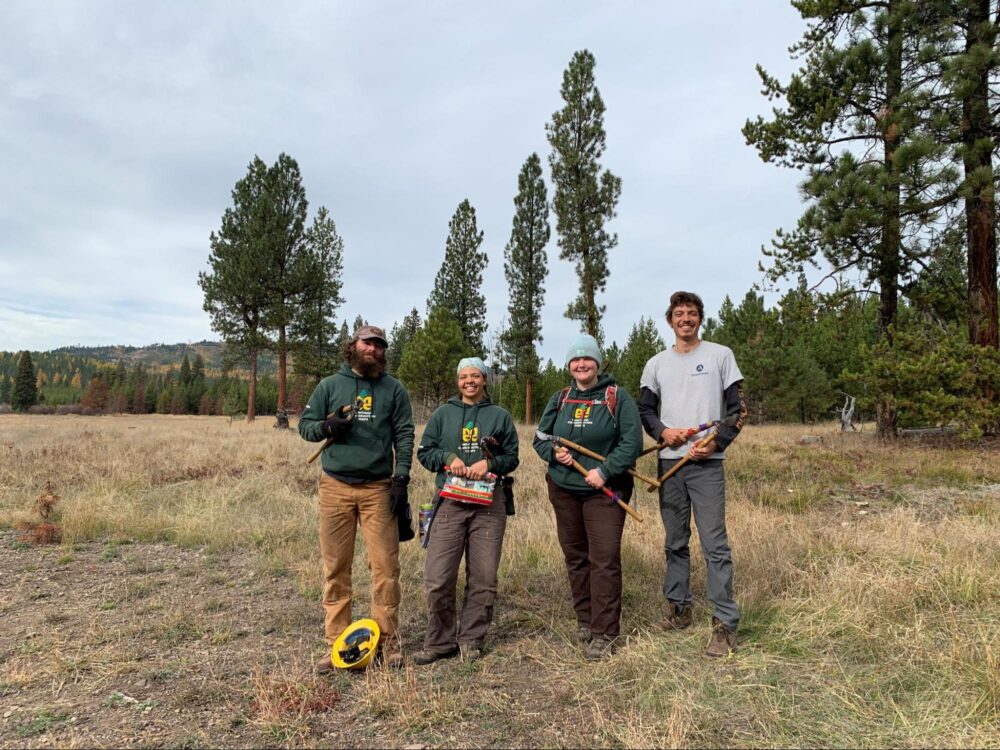We have much more to do and your continued support is needed now more than ever.
Loyola Brews Up a New Model for Sustainability Courses
On the shores of Lake Michigan, just north of downtown Chicago, something special is happening at Loyola University. As they enter the third semester of the Solutions to Environmental Problems course (STEP), a team of faculty and students is discovering that interdisciplinary, project-based courses about sustainability can be life-changing.
“The way we approach environmental education could really use a makeover,” said Zack Waickman, a former student of STEP who became the assistant manager of the biodiesel lab after graduating last year. Before enrolling in STEP, Waickman was pursuing a career in broadcast media, but his experience in the class ignited his passion for a greener career. “The sustainability movement is open to everyone from every background. We don’t all need to be environmental scientists or engineers to solve these problems—why not tap into that? This class really inspired me to change directions in my life.” Zach is not alone—the eyes of every student and faculty member we interviewed light up when they talk about the experience.

Gina Lettiere, the coordinator for Loyola’s Center for Urban Environmental Research and Policy (CUERP), says the goals of STEP are “to raise awareness of students, to give them hands-on experiences and skills so when they graduate they become civically engaged stewards and carry on a sustainable way of living.” The first STEP class was taught in the fall of 2007 and explored the potential of biodiesel to provide a clean, renewable alternative to petroleum.
STEP fits well with the Jesuit education’s emphasis on social justice and empowering what Loyola’s President Father Michael Garazini calls “the whole person…their imaginations, their insights, their ethics.” According to a campus sustainability analysis conducted by Dr. Marshall Eames, one of the professors of STEP, Loyola offers an impressive 104 courses that address sustainability at some level. By graduation, the average Loyola student has taken three of these courses, and 90% have taken at least one.
In its first semester, STEP attracted twenty-two students from communications, business, education, political science, sociology, chemistry, biology and environmental studies, each with their own reasons for signing up to study biodiesel. “Students were given a great deal of latitude to identify problems they wanted to investigate,” Dr. Eames explained. Thirteen faculty and CUERP staff volunteered time above their university contracts to participate in this interdisciplinary, cutting-edge course. The course design also appealed to the EPA, which awarded a $10,000 People, Prosperity, and the Planet (P3) Phase I grant to set up the lab.
Professors set the bar high for the three-credit course, and students were required to exhibit their results through forums, panels, documentaries, or other forms of public outreach. With faculty and staff serving as mentors, teams of one to six students researched how to extract lipids from algae, analyzed the costs of running a biodiesel facility, developed business and marketing plans, and created instructional and promotional videos.
Despite the demands of the course, students rose to the challenge. “The quality of the research has really been a surprise,” Dr. Eames remarked, “as was the quality of the documentary that was made by students of some of these projects.” Eames attributes this partly to “mentoring from strong faculty, but mostly to the dedication and professionalism of the students.” The EPA awarded the class an additional $75,000 “Phase 2” P3 grant to educate high school students about biodiesel production.
In the spring of 2008, 18 of the original semester’s 22 students continued to work on their projects through an advanced, second semester of STEP, and a number have enrolled in a third this fall. The freedom to see projects to completion has been a cornerstone of STEP’s success, and returning veterans agree to mentor newly enrolled students. Fall 2008 will be the final semester addressing biodiesel, after which STEP will shift its focus to food sustainability for the next three semesters.
One year into the program, the biodiesel lab is running smoothly and converting waste veggie oil from the dining halls into 25 gallons of biodiesel per week, which Waickman hopes to scale up as they refine the process and ensure the purity of the biodiesel.

Reflecting on the course, Lettiere and Dr. Eames believe it exceeded expectations in many ways, and they have identified a few minor improvements to further enrich the learning experience. “We have to front-load, even pre-load so they’re engaged right away,” said Dr. Eames. Students will be required to write a solid research plan and proposal before the semester begins and will spend more time in the first few weeks finalizing their projects with mentors.
Challenging as it can be to develop curricula that emphasize sustainability and climate stewardship, Loyola’s STEP course offers proof that liberal arts colleges and universities can empower their students to contribute to a clean energy future. In one of the documentaries students made about STEP, CUERP director Nancy Tuchman emphasizes the importance of providing hands-on opportunities for students to explore their role in creating a low-carbon world, whatever their field. “This is where it goes way beyond our university community…that’s what makes universities important in effecting change in the whole global climate crisis.”
See More:
UI Students Convert Vegetable Oil Into Biodiesel— DailyIllini.com
College of the Atlantic Aims for the Triple Bottom Line — ClimateEdu




















